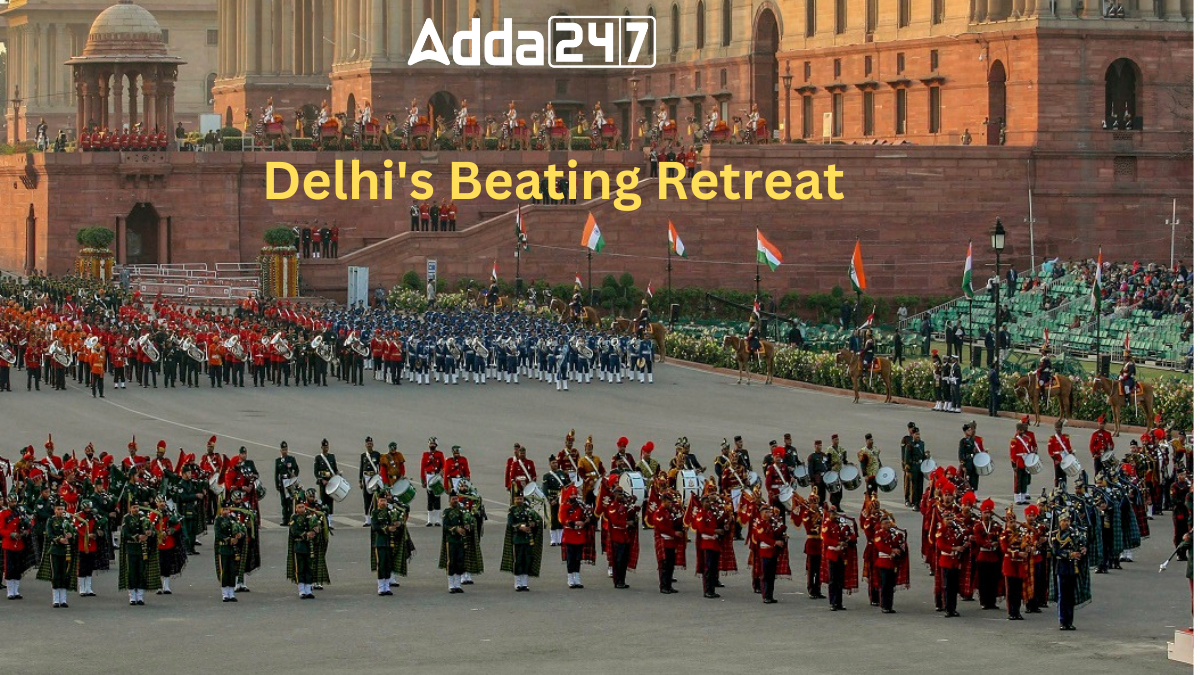At the Vijay Chowk on January 29, the Beating Retreat ceremony, which signifies the end of Republic Day celebrations, began amid the strains of beautiful music. Enthralling and energetic Indian music, performed by military and paramilitary bands, echoed around the Raisina Hills in the center of the nation’s capital.
Historical Significance
The traditional ‘buggy’ that President and Supreme Commander of the Armed Forces Droupadi Murmu arrived at the location in added to the event’s vintage charm, which dates back to its inception in the early 1950s. The Beating Retreat ceremony is a cherished tradition that pays homage to India’s military heritage and honors the sacrifices of its armed forces.
Founding and Evolution
Major Roberts of the Indian Army created the original ceremonial of the massed bands performing a beatdown in the early 1950s, which is when the Beating Retreat ceremony first emerged. Over the years, it has evolved into a grand spectacle that showcases the unity, discipline, and musical prowess of India’s military and paramilitary forces.
Symbolism and Rituals
When the soldiers sheathed their weapons, stopped fighting, left the battlefield, and heard the retreat siren at dusk, they were following a centuries-old military custom. Flags are lowered and colors and standards are cased. The ritual evokes nostalgia for bygone eras while symbolizing the transition from warfare to peace.
Attendance and Dignitaries
In addition to the general public, the huge event was attended by Vice President Jagdeep Dhankhar, Prime Minister Narendra Modi, Defence Minister Rajnath Singh, various union ministers, Chief of Defence Staff Gen. Anil Chauhan, the three service chiefs, and senior officials. The presence of these dignitaries underscores the significance of the Beating Retreat ceremony in India’s national consciousness.
The Beating Retreat: Beyond Music and Tradition
The Beating Retreat ceremony in Delhi is more than just a musical extravaganza; it is a poignant reminder of India’s rich military history, its commitment to peace, and its reverence for tradition. As the strains of the retreat fade into the evening sky, they leave behind a sense of pride and patriotism that resonates with all who witness this grand spectacle.
Important Questions Related to Exams
1. What is the significance of the Beating Retreat ceremony?
2. Who created the original ceremonial of the massed bands performing a beatdown in the early 1950s?
3. Who is the Supreme Commander of the Armed Forces in India?
Kindly share your responses in the comment section.




 India-US Vajra Prahar 2026: Special Forc...
India-US Vajra Prahar 2026: Special Forc...
 Defense Minister Rajnath Singh Inaugurat...
Defense Minister Rajnath Singh Inaugurat...
 MILAN Village Opens in Visakhapatnam For...
MILAN Village Opens in Visakhapatnam For...








